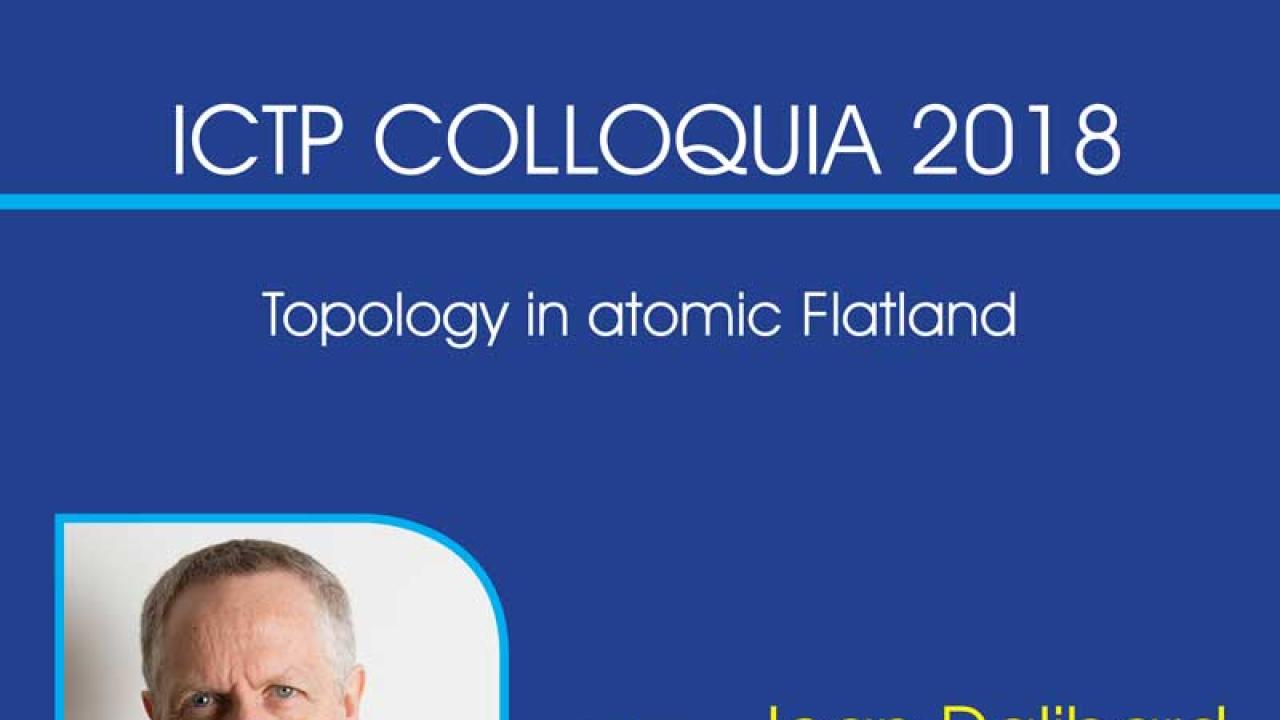
ICTP is pleased to be hosting Professor Jean Dalibard of CNRS-ENS and Collège de France for an ICTP Colloquium this Wednesday, 5 September, 2018, at 16:30 in the Budinich Lecture Hall. Dalibard will be delving into the physics of many-body systems with a talk entitled, "Topology in Atomic Flatland."
Professor Dalibard heads an experimental research group at CNRS-ENS and Collège de France in Paris. Some of his notable work includes the first observation of a Kosterlitz-Thouless transition in 2D Bose gases, and studies of vortex dynamics in rotating condensates. Early in his career, Dalibard was responsible for key theoretical ideas in laser cooling and trapping, including polarization gradient cooling and the Magneto-optical Trap (MOT), and thus provides in his present work the link between theoretical and experimental quantum optics. He has also pioneered theoretical methods to solve the dynamics of open quantum systems utilizing quantum trajectories.
The Colloquium will be livestreamed on ICTP's Youtube and Facebook pages. Light refreshments will be served after the talk, and all are warmly invited to attend.
Abstract: The physics of many-body systems strongly depends on their dimensionality. For example, in a two-dimensional world, most standard phase transitions towards an ordered state of matter would not occur, because of the increased role of fluctuations. However non-conventional "topological" transitions can still take place, as understood initially by Kosterlitz and Thouless. During the last decade, a novel environment has been developed for the study of low-dimensional physics. It consists of cold atomic gases confined in tailor-made light traps, forming thus a thin layer of material particles. In this talk, Prof. Dalibard will present some key aspects of these quantum 2D gases, such as their transition to a superfluid state and their (approximate) scale invariance. He will also discuss out-of-equilibrium features, like the nucleation of random currents when merging independent samples.













